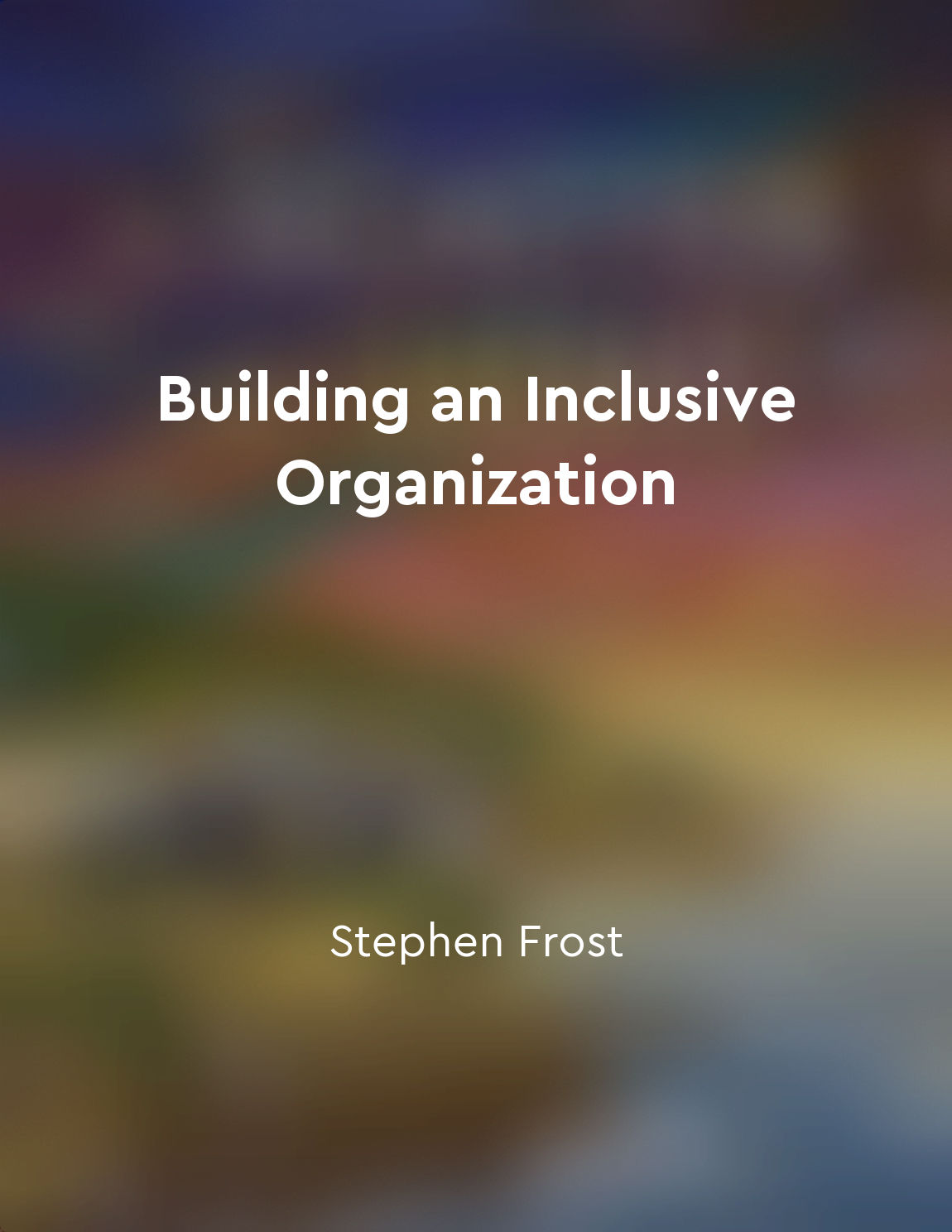Employee wellbeing should be a priority for businesses from "summary" of Reimagining Capitalism in a World on Fire by Rebecca Henderson
In our modern world, it is increasingly clear that businesses must prioritize the wellbeing of their employees. This is not just a moral imperative; it is also a strategic necessity. Research shows that companies that invest in the health and happiness of their workers tend to outperform their competitors in the long run. When employees feel valued and supported, they are more likely to be engaged and motivated in their work. This leads to higher productivity, better customer service, and ultimately, higher profits. Moreover, organizations that prioritize employee wellbeing are better equipped to attract and retain top talent in a competitive labor market. Creating a culture of wellbeing within a company requires a holistic approach. This may involve offering benefits such as flexible working arrangements, mental health support, and opportunities for professional development. It also involves fostering a sense of community and belonging among employees, so that they feel connected to their work and their colleagues. Importantly, businesses must recognize that the wellbeing of their employees is interconnected with the wellbeing of society and the environment. For example, a company that invests in the health and safety of its workers is also contributing to the overall health and resilience of the community in which it operates. Similarly, a business that prioritizes sustainability and ethical practices is helping to create a more sustainable and equitable world for future generations. In the end, businesses that prioritize employee wellbeing are not only doing the right thing; they are also setting themselves up for long-term success. By creating a positive and supportive work environment, companies can drive innovation, attract top talent, and build strong relationships with customers and stakeholders. In a world that is increasingly interconnected and interdependent, the wellbeing of employees is not just a nice-to-have—it is a strategic imperative.Similar Posts
Authenticity is crucial for credibility
Authenticity is crucial for credibility. When leaders are authentic, they build trust with those they are leading. This trust i...
Developing a positive mindset can lead to greater success
A positive mindset is a powerful tool that can make a significant impact on one's success. When you approach challenges with a ...
Listen to employees' ideas and feedback
One of the most important aspects of fostering a joyful workplace is to truly listen to what your employees have to say. This m...
Mindful work environments encourage creativity and innovation
Mindful work environments are conducive to creativity and innovation. When employees are able to focus fully on the task at han...
Strive for excellence in everything you do
This world is full of mediocrity. Average has become the norm, and excellence is a rare commodity. But why settle for average w...

Celebrate diversity in all its forms
The idea of celebrating diversity in all its forms is a crucial aspect of creating an inclusive organization. This concept invo...
Take risks
Taking risks is a fundamental aspect of building anything from scratch. It's a necessary component of the entrepreneurial journ...
Visionary leaders are committed to personal development
Visionary leaders understand that personal growth is an ongoing journey, not a destination. They are committed to continuously ...
Purposedriven companies outperform their competitors in the long run
Purposedriven companies are those that have a clear and meaningful reason for existence beyond just making a profit. They are d...

